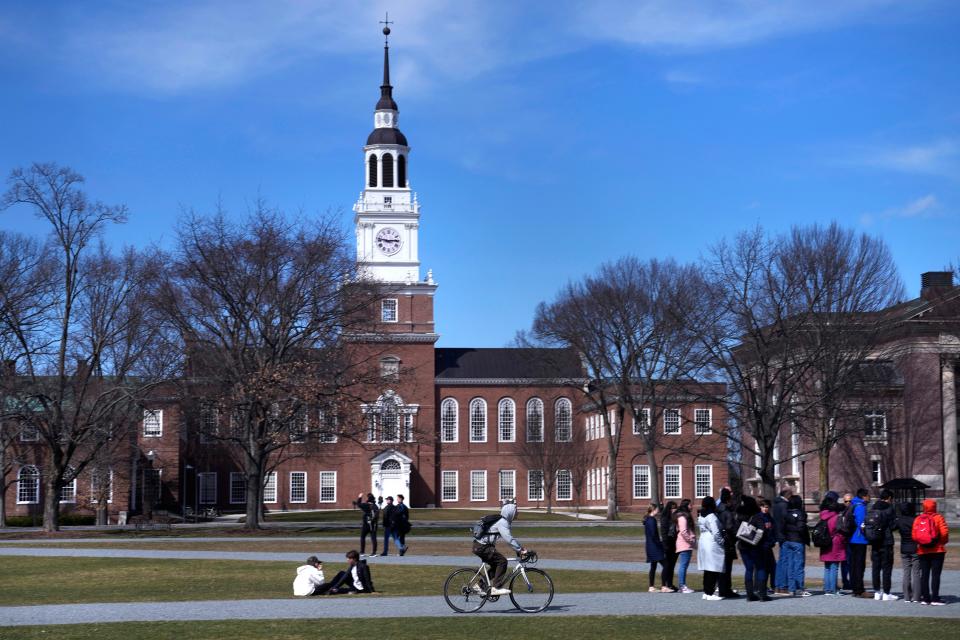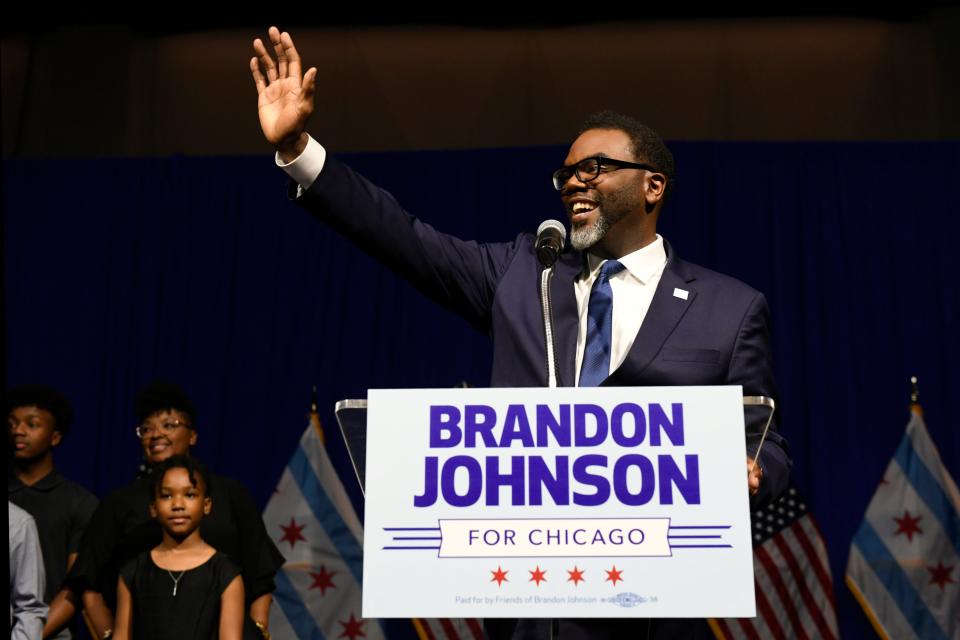Using the SAT, ACT in college admissions isn't 'racist.' What else has the left got wrong?
It’s hard to admit when you’ve made a mistake. And it’s rare for a mea culpa to come from the world of education.
Yet, that’s what Dartmouth did this week. Sort of.
The Ivy League college announced that it is bringing back a standardized testing requirement for undergraduate admissions, starting with the Class of 2029, after doing away with it in response to the pandemic nearly four years ago. A large number of top colleges and universities have gone “testing optional” in recent years with the aim of boosting diversity, so Dartmouth’s decision makes it an anomaly.
Why is it doing that? Dartmouth researchers used the years-long pause to study the actual impact of the policy’s absence. Turns out that was a smart idea.
“Our bottom line is simple: we believe a standardized testing requirement will improve − not detract from − our ability to bring the most promising and diverse students to our campus,” Dartmouth said in a statement.

Counter to the progressive groupthink on this issue, the study found that low-income students are actually harmed when SAT or ACT scores aren’t considered in their admissions application. The researchers discovered economically disadvantaged students had withheld their test scores when it was optional, mistakenly believing they were too low.
“It (standardized testing) is another opportunity to identify students who are the top performers in their environments, wherever they might be,” Dartmouth stated.
Maybe standardized tests aren't racist?
Wait a minute. We’ve been told for years that standardized tests like the ones used traditionally for college entrance exams are racist, inequitable and unfair.
Perhaps not.
Standardized tests have always been a solid predictor of student success (when combined with other factors), and they offer a consistent measuring device of student preparation, regardless of where they’re from.
Dartmouth’s research supports those facts.
So, good for this college in saying it would change course. I’m not holding my breath, however, that others will follow. Not for a while, anyway.
Higher education has gone all in on the DEI (diversity, equity and inclusion) bandwagon, and it will not be easy to untangle itself from this way of thinking.
New path for Harvard: With Claudine Gay out, Harvard can double down on DEI or embrace freedom and true diversity
And the left is adept at sidestepping criticism of its ideas by calling out detractors as racist, sexist, transphobic, homophobic or simply mean.
Yet, just because something sounds kind doesn't mean it is.
Opinion alerts: Get columns from your favorite columnists + expert analysis on top issues, delivered straight to your device through the USA TODAY app. Don't have the app? Download it for free from your app store.
In name of 'equity,' schools are embracing horrible ideas
If so many progressives got something as big as standardized tests wrong, what else are they wrong about?
There are a slew of worrisome policies, not just in higher education but in K-12 schools, too. Many of these measures will ensure low-income and minority students are even less prepared to succeed in college.

Here are a few that should set off alarm bells:
Progressive Chicago Mayor Brandon Johnson and his appointed Board of Education announced in December that they would do away with the city’s selective-enrollment schools (even though the students attending them are high-achieving) in the name of “equity.” That is such a backward way to approach the issue. If the concern is that these schools aren’t diverse enough, then put resources to better equip students to participate. Don’t punish gifted students or limit opportunities for others to excel in the name of not making other students feel bad.
A California high school in a Los Angeles suburb chose to eliminate honors classes for ninth- and 10th-grade students. School officials claimed it was to increase equity. Apparently, teachers were concerned that not enough Black and Hispanic students were enrolling in Advanced Placement courses. So the default option is to take away the honors coursework that could best prepare students for AP classes and college?
School district officials in Portland, Oregon, signaled last fall that they are making grading more “equitable” to reduce bias in the classroom. District data showed “racial disparities” in students’ performance. Rather than get to the bottom of these disparities, the district opted to change how it graded students. If a student cheats? It can’t affect the child’s grade. If an assignment is late or missing? The teacher can no longer give a zero.
Parents have power: After COVID school shutdowns, parents have learned an important lesson
Forcing this fake kind of “equity” by lowering standards and removing opportunities for students is disturbing.
I hope Dartmouth’s reinstatement of the standardized test requirement compels more DEI warriors to rethink some seriously misguided ideas.
Ingrid Jacques is a columnist at USA TODAY. Contact her at ijacques@usatoday.com or on X, formerly Twitter: @Ingrid_Jacques
You can read diverse opinions from our Board of Contributors and other writers on the Opinion front page, on Twitter @usatodayopinion and in our daily Opinion newsletter.
This article originally appeared on USA TODAY: SAT isn't racist. How liberals got it wrong with standardized tests

